
Jun 23, 2016 | Focolare Worldwide
 Nearly two months have gone by since Ecuador was hit by a disastrous earthquake. The Focolare Movement immediately began a fundraising effort to meet requests for basic necessities, and it set up a work group coordinated by the United World Association and the New Families NPO Association. The generous support of people from around the world arrived quickly, and we have now ready to send the first funds that will provide people of Ecuador with such things as food, sanitation and psychological support. This assistance will be directed especially to families from the Provinces of Manabi and Espmeraldes, which suffered the most damage. In partnership with the local NGO, Fondo Ecuatoriano Populorum Progressio (FEPP), the first six-month phase will focus on studying the reconstruction of infrastructure and returning local production. The study will work in collaboration with the international network of architects known as “Arquitecturalimite” which specializes in designing services in contexts where there is socio-economic exclusion. On November 9 – 13, 2016, while a course on peace is being offered to young people, a series of architectural workshops will be taking place to deal with possible responses to the earthquake disaster. How you can help Source: AMU – AFN Onlus
Nearly two months have gone by since Ecuador was hit by a disastrous earthquake. The Focolare Movement immediately began a fundraising effort to meet requests for basic necessities, and it set up a work group coordinated by the United World Association and the New Families NPO Association. The generous support of people from around the world arrived quickly, and we have now ready to send the first funds that will provide people of Ecuador with such things as food, sanitation and psychological support. This assistance will be directed especially to families from the Provinces of Manabi and Espmeraldes, which suffered the most damage. In partnership with the local NGO, Fondo Ecuatoriano Populorum Progressio (FEPP), the first six-month phase will focus on studying the reconstruction of infrastructure and returning local production. The study will work in collaboration with the international network of architects known as “Arquitecturalimite” which specializes in designing services in contexts where there is socio-economic exclusion. On November 9 – 13, 2016, while a course on peace is being offered to young people, a series of architectural workshops will be taking place to deal with possible responses to the earthquake disaster. How you can help Source: AMU – AFN Onlus
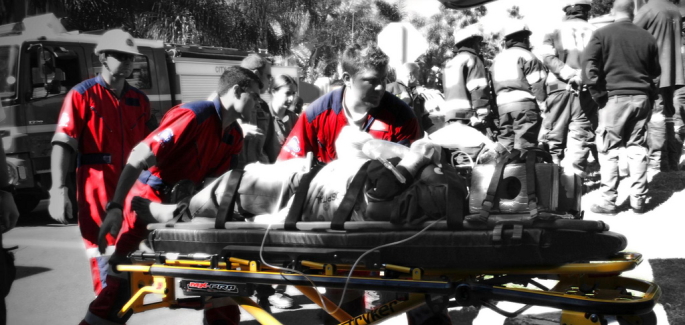
Jun 22, 2016 | Non categorizzato
 To New Life I’m a doctor working in emergency services. One morning I got called to help an elderly man who wasn’t feeling well. He was living in the midst of a lot of disorder, crushed by the death of his only son under mysterious circumstances. When I looked at his documents I realized that during the Communist Regime he had done a lot of evil things to people. I put aside all my judgements and tried to help that suffering man in front of me who was in need of affection. Beyond it all, now, for me, he was a neighbour that Jesus was inviting me to love. He spoke to me often of his past whenever I went to visit him at the hospital. Sometimes it was hard for me to listen to him, but when I was able to tell him about my own faith, I saw hope switch on in the man: It was as if he was being born to new life.” M. U. (Czech Republic) The Contract “I’m in charge of sales at the business I work for. We were competing for the contract with a major supplier and we had all the credentials to get it: design, price appeal . . . But to get the contract we would have to pay a bribe. Another Christian and I decided not to continue with the deal even at the cost of losing a significant percentage of that month’s sales. But the following month sales exceeded projections and covered the previous deficits. For us it seemed like a confirmation that it always pays to trust God. J. P. (Panama) The Translation “I had to finish a translation before the end of the evening. It was to be used for one of the presentations at a conference. Then, the telephone rang. It was a friend telling me that he needed my help right away, and it was urgent. I assured him I would help him. Only that when I received the text of the letter he wanted me to work on, I saw that there were certain technical terms that turned out to be difficult for me to translate. Only with the help of internet and several telephone calls to specialists in his field was I able to finish the translation for him, even though it was at the cost of my own work. Still, I was at peace for having helped my friend. At that point, I telephoned the association that had assigned me the translation, to explain that I would send it them on the day after, thinking that I could stay up all night and work on it. But they replied: “You can sleep soundly. That presentation has been postponed.” T. M. (Slovak Republic)
To New Life I’m a doctor working in emergency services. One morning I got called to help an elderly man who wasn’t feeling well. He was living in the midst of a lot of disorder, crushed by the death of his only son under mysterious circumstances. When I looked at his documents I realized that during the Communist Regime he had done a lot of evil things to people. I put aside all my judgements and tried to help that suffering man in front of me who was in need of affection. Beyond it all, now, for me, he was a neighbour that Jesus was inviting me to love. He spoke to me often of his past whenever I went to visit him at the hospital. Sometimes it was hard for me to listen to him, but when I was able to tell him about my own faith, I saw hope switch on in the man: It was as if he was being born to new life.” M. U. (Czech Republic) The Contract “I’m in charge of sales at the business I work for. We were competing for the contract with a major supplier and we had all the credentials to get it: design, price appeal . . . But to get the contract we would have to pay a bribe. Another Christian and I decided not to continue with the deal even at the cost of losing a significant percentage of that month’s sales. But the following month sales exceeded projections and covered the previous deficits. For us it seemed like a confirmation that it always pays to trust God. J. P. (Panama) The Translation “I had to finish a translation before the end of the evening. It was to be used for one of the presentations at a conference. Then, the telephone rang. It was a friend telling me that he needed my help right away, and it was urgent. I assured him I would help him. Only that when I received the text of the letter he wanted me to work on, I saw that there were certain technical terms that turned out to be difficult for me to translate. Only with the help of internet and several telephone calls to specialists in his field was I able to finish the translation for him, even though it was at the cost of my own work. Still, I was at peace for having helped my friend. At that point, I telephoned the association that had assigned me the translation, to explain that I would send it them on the day after, thinking that I could stay up all night and work on it. But they replied: “You can sleep soundly. That presentation has been postponed.” T. M. (Slovak Republic)

Jun 21, 2016 | Non categorizzato
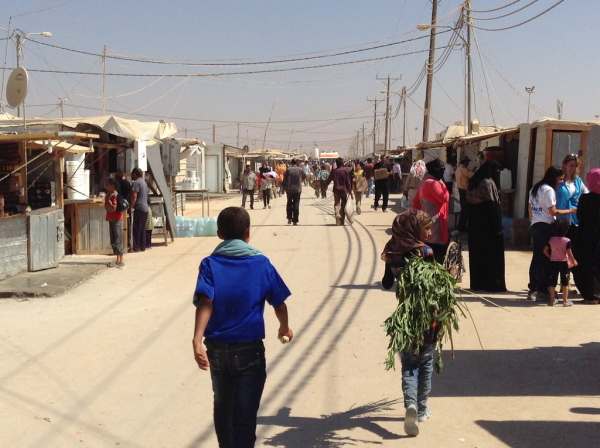
Refugee camp, Jordan. Photo credit: Flickr
 HOST SPOT is financed by the European Community Erasmus +. The name plays on the European notion of a ‘hot spot’ as a point of arrival where refugees can be welcomed. The word “SPOT” stands for the short commercial-like television or radio spots that will be part of major television and radio programming, and the production of a major video. After Jordan, a training course is planned for Turkey in October 2016. It will offer training in journalism and storytelling for the promotion of human rights and, in particular, freedom of expression. A further course will be held in Germany in March 2017 for developing basic technical production skills for social documentaries with live filming. There will be opportunities to meet the refugees in the German refugee camps and compare different approaches and systems for welcoming them. The project that underscores encounter and reciprocity hopes to document and film the personal stories and daily life of refugees in the camps, providing the public with more information for understanding the refugees, and for informing their conscience. Info: info@new-humanity.org Maria Chiara De Lorenzo
HOST SPOT is financed by the European Community Erasmus +. The name plays on the European notion of a ‘hot spot’ as a point of arrival where refugees can be welcomed. The word “SPOT” stands for the short commercial-like television or radio spots that will be part of major television and radio programming, and the production of a major video. After Jordan, a training course is planned for Turkey in October 2016. It will offer training in journalism and storytelling for the promotion of human rights and, in particular, freedom of expression. A further course will be held in Germany in March 2017 for developing basic technical production skills for social documentaries with live filming. There will be opportunities to meet the refugees in the German refugee camps and compare different approaches and systems for welcoming them. The project that underscores encounter and reciprocity hopes to document and film the personal stories and daily life of refugees in the camps, providing the public with more information for understanding the refugees, and for informing their conscience. Info: info@new-humanity.org Maria Chiara De Lorenzo
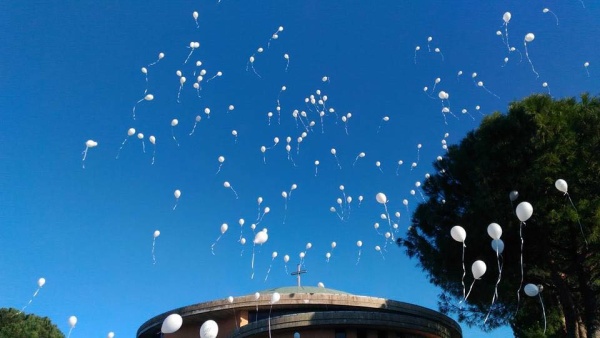
Jun 20, 2016 | Focolare Worldwide
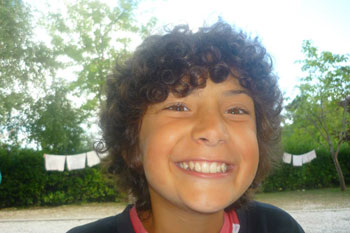 The moment news of his illness spread, the friends of Andrea, together with the boys and adults of Appignano started to join forces with the family in the small chapel of Madonna Addolorata. Every time the number grew and intensified their prayers for the healing of Andrea. As his hospitalization extended, they asked with faith that also Andrea’s family would find strength and peace, and that Andrea would never feel alone, even when he had to face checkups and treatments and would not suffer excessively. Precisely this year his class was preparing the children and their parents for the first communion, and all together decided to postpone the event to next year, to allow Andrea to receive the sacrament with all of them.
The moment news of his illness spread, the friends of Andrea, together with the boys and adults of Appignano started to join forces with the family in the small chapel of Madonna Addolorata. Every time the number grew and intensified their prayers for the healing of Andrea. As his hospitalization extended, they asked with faith that also Andrea’s family would find strength and peace, and that Andrea would never feel alone, even when he had to face checkups and treatments and would not suffer excessively. Precisely this year his class was preparing the children and their parents for the first communion, and all together decided to postpone the event to next year, to allow Andrea to receive the sacrament with all of them. 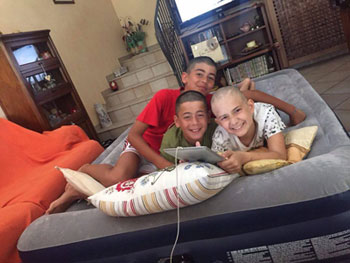 Finally Andrew returned home, and his friends, knowing that his hair had fallen due to the therapy, decided to cut their hair short to welcome him back. Meantime, Andrea, like a real trooper of serenity continued the treatments, without losing his wonderful smile. After two years, Andrea seemed to have been healed, so much so that he was able to participate in the summer training course, and subsequently, in the weekly meetings of the Diocesan Movement of the Focolare.
Finally Andrew returned home, and his friends, knowing that his hair had fallen due to the therapy, decided to cut their hair short to welcome him back. Meantime, Andrea, like a real trooper of serenity continued the treatments, without losing his wonderful smile. After two years, Andrea seemed to have been healed, so much so that he was able to participate in the summer training course, and subsequently, in the weekly meetings of the Diocesan Movement of the Focolare. 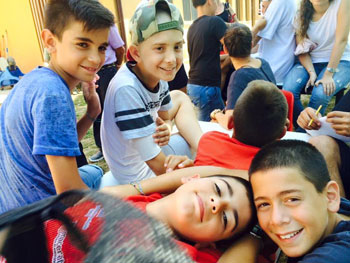 Something new came up in 2016: the checkups revealed the need for a new round of treatments and which also this time seemed to give positive results. But precisely upon returning home from a Gen3 meeting, a serious crisis forced him to an urgent hospitalisation. Something indescribable then happened in Appignano. Thrice a week his classmates and all those of the School, together with the young friends of Federica, his sister and the many people closet o the family, started to fill the crape of Addolorata. The kids themselves led the prayers, in an amazing spiritual atmosphere of faith in God who is Love, certain that all He sent or allows to happen, always leads to the Good. A certainty that, even when Andrea, at the age of 13 left this earthly existence, his presence in the community of Appignano has never diminished. For two days there was an uninterrupted pilgrimage of kids and adults to the Addolorata chapel where – where Andrew lay – to gather round the family with wake shifts so that he was never left alone. At the funeral celebrated in the parish, the church could not contain all the people. The celebrant spoke of Andrew as a “trooper” and a “teacher of life” and in recalling the strength with which he faced his illness, underlined with amazement his deep sense of humanity, fraternity and faith which the boy managed to imbue in the entire community. At the end, the children and kids launched hundreds of white balloons in the sky, as a symbol of the certainty that Andrew is now in Heaven and their great support to the family: an event that went viral on the network.
Something new came up in 2016: the checkups revealed the need for a new round of treatments and which also this time seemed to give positive results. But precisely upon returning home from a Gen3 meeting, a serious crisis forced him to an urgent hospitalisation. Something indescribable then happened in Appignano. Thrice a week his classmates and all those of the School, together with the young friends of Federica, his sister and the many people closet o the family, started to fill the crape of Addolorata. The kids themselves led the prayers, in an amazing spiritual atmosphere of faith in God who is Love, certain that all He sent or allows to happen, always leads to the Good. A certainty that, even when Andrea, at the age of 13 left this earthly existence, his presence in the community of Appignano has never diminished. For two days there was an uninterrupted pilgrimage of kids and adults to the Addolorata chapel where – where Andrew lay – to gather round the family with wake shifts so that he was never left alone. At the funeral celebrated in the parish, the church could not contain all the people. The celebrant spoke of Andrew as a “trooper” and a “teacher of life” and in recalling the strength with which he faced his illness, underlined with amazement his deep sense of humanity, fraternity and faith which the boy managed to imbue in the entire community. At the end, the children and kids launched hundreds of white balloons in the sky, as a symbol of the certainty that Andrew is now in Heaven and their great support to the family: an event that went viral on the network.  A labourer, head of a family, observed: “What impresses me most is the great number of people of various nationalities and religions. It is a real lesson also for us adults who often forget that humanity which unites us all. Andrea and his friends are our teachers of life” And a girl wrote “We prayed so hard for a miracle. And the miracle came about: a child was able to unite an entire town around him, and this is something inexpiable.” At the cemetery a girl, upon seeing a woman sobbing, went up to her and said: “Don’t cry. Andrew is now with Jesus.” Two months have passed and the prayer sessions in have continued every Wednesday, “It’s important that we do so,” one of the kids said. “We need to go ahead so that the fruits of the life of Andrew – that’s how I like to consider them– can continue to bear fruit among us.”
A labourer, head of a family, observed: “What impresses me most is the great number of people of various nationalities and religions. It is a real lesson also for us adults who often forget that humanity which unites us all. Andrea and his friends are our teachers of life” And a girl wrote “We prayed so hard for a miracle. And the miracle came about: a child was able to unite an entire town around him, and this is something inexpiable.” At the cemetery a girl, upon seeing a woman sobbing, went up to her and said: “Don’t cry. Andrew is now with Jesus.” Two months have passed and the prayer sessions in have continued every Wednesday, “It’s important that we do so,” one of the kids said. “We need to go ahead so that the fruits of the life of Andrew – that’s how I like to consider them– can continue to bear fruit among us.”
Jun 19, 2016 | Non categorizzato

Jun 19, 2016 | Non categorizzato
 “Ever since the beginning of the Movement, especially because of the sad circumstances of the War, Chiara and her companions were very attentive to the poor of their city, taking them into their house, visiting them, providing them with the basic necessities and assisting them in many other ways. Through this loving exercize toward their neighbours who were in need, they later realized that their heart shouldn’t only be turned towards the poor but towards all people without making any distinctions. (…) Chiara mentions the works of mercy in several letters, which she wrote in those early days to people who had drawn near to the Movement. We present a letter she wrote to her friend Anna, inviting her to live out the works of mercy that God puts before her in every moment of the day. “Remember that at the end of life you’ll be asked for the 7+7 works of Mercy. If you did them, you did everything. And I’d like you to join us in living the present moment and, in the present moment, the work of Mercy that God requires of us. Do you study? = You instruct the ignorant. Do you tutor a classmate? = You counsel the doubting. Do you eat or give food to others? = You feed the hungry. Do you drink or give someone a drink? = You quench the thirst of the thirsty. The 14 Acts of Mercy should determine each of your actions. And each of your actions should be turned towards Jesus who should live and grow in you and in your neighbour. Mutual Love, the Pact of Mercy and Pardon Jesus’s new commandment: “Love one another as I have loved you” (see Jn 13:34), which highlights what is specific about the interpersonal relations of Christians and the ultimate goal of mercy, is another cardinal point of the spirituality of Chiara Lubich. Mutual love lived out with an attitude of being the first to love, of free and unconditional self-giving one to the other, was what characterized the life of the first focolare. Chiara herself described its radicalness, when she spoke to a group of Muslim friends about the Pact of Mercy. (…) On other occasions Chiara reiterated the opportuneness of this practice, underscoring the value of pardoning, and describing it as a real act of freedom: “Pardon. Always pardon. Pardon is forgetting, which often means not wanting to look at reality in the face. Pardon is not weakness, that is, not taking into account a wrong for fear of the stronger one who committed it. Pardon doesn’t consist in carelessly signing on to what is wrong, or in calling good what is evil. Pardon is not indifference. Pardon is a lucid and willful decision, an act of freedom therefore, which consists in welcoming our brothers and sisters as they are, in spite of the wrong they have done, as God welcomes us sinners in spite of our defects. Pardon consists in not responding to an offence with another offence, but in doing as Paul says: ‘Never let yourselves be overcome by evil, but overcome evil with good.’ Pardon consists in opening the possibility of a new relationship with you to anyone who has done you wrong, the possiblity therefore for you and him to begin life again, to have a future in which evil will not have the last word. (…)” Chiara returns to the topic of this relationship that we should have with every brother and sister, specifying the need of starting over: “Perhaps that brother – like all of us – has commited errors, but how does God see him? What really is his condition, the truth of his state? If he’s right before God, God no longer remembers anything, He’s already cancelled everything with His blood. And we, why should we remember? Who is in the wrong in that moment? I who judge, or my brother? Me.” And so I have to move myself to seeing things from God’s eyes, in the truth and accordingly with my brother, because, if for misfortune he is not yet right with the Lord, the warmth of my love, which is Christ in me, would lead him to contrition as the sun heals and absorbs and heals many wounds. Charity is maintatined with the truth and truth is pure mercy, with which we must be clothed from head to toe so that we can call ourselves Christians. Does my brother or sister return to me? I must see him new as if nothing had happened, and begin to live with him again in the unity of Christ like at first, because there is nothing anymore. This trust of mine will keep him from other falls and I too – if I have used this measure with him – will be able to hope that God one day will judge me.” Source: Centro Chiara Lubich Part 1: Mercy in the Spirituality of Chiara Lubich Complete text by Alba Sgariglia (Italian)
“Ever since the beginning of the Movement, especially because of the sad circumstances of the War, Chiara and her companions were very attentive to the poor of their city, taking them into their house, visiting them, providing them with the basic necessities and assisting them in many other ways. Through this loving exercize toward their neighbours who were in need, they later realized that their heart shouldn’t only be turned towards the poor but towards all people without making any distinctions. (…) Chiara mentions the works of mercy in several letters, which she wrote in those early days to people who had drawn near to the Movement. We present a letter she wrote to her friend Anna, inviting her to live out the works of mercy that God puts before her in every moment of the day. “Remember that at the end of life you’ll be asked for the 7+7 works of Mercy. If you did them, you did everything. And I’d like you to join us in living the present moment and, in the present moment, the work of Mercy that God requires of us. Do you study? = You instruct the ignorant. Do you tutor a classmate? = You counsel the doubting. Do you eat or give food to others? = You feed the hungry. Do you drink or give someone a drink? = You quench the thirst of the thirsty. The 14 Acts of Mercy should determine each of your actions. And each of your actions should be turned towards Jesus who should live and grow in you and in your neighbour. Mutual Love, the Pact of Mercy and Pardon Jesus’s new commandment: “Love one another as I have loved you” (see Jn 13:34), which highlights what is specific about the interpersonal relations of Christians and the ultimate goal of mercy, is another cardinal point of the spirituality of Chiara Lubich. Mutual love lived out with an attitude of being the first to love, of free and unconditional self-giving one to the other, was what characterized the life of the first focolare. Chiara herself described its radicalness, when she spoke to a group of Muslim friends about the Pact of Mercy. (…) On other occasions Chiara reiterated the opportuneness of this practice, underscoring the value of pardoning, and describing it as a real act of freedom: “Pardon. Always pardon. Pardon is forgetting, which often means not wanting to look at reality in the face. Pardon is not weakness, that is, not taking into account a wrong for fear of the stronger one who committed it. Pardon doesn’t consist in carelessly signing on to what is wrong, or in calling good what is evil. Pardon is not indifference. Pardon is a lucid and willful decision, an act of freedom therefore, which consists in welcoming our brothers and sisters as they are, in spite of the wrong they have done, as God welcomes us sinners in spite of our defects. Pardon consists in not responding to an offence with another offence, but in doing as Paul says: ‘Never let yourselves be overcome by evil, but overcome evil with good.’ Pardon consists in opening the possibility of a new relationship with you to anyone who has done you wrong, the possiblity therefore for you and him to begin life again, to have a future in which evil will not have the last word. (…)” Chiara returns to the topic of this relationship that we should have with every brother and sister, specifying the need of starting over: “Perhaps that brother – like all of us – has commited errors, but how does God see him? What really is his condition, the truth of his state? If he’s right before God, God no longer remembers anything, He’s already cancelled everything with His blood. And we, why should we remember? Who is in the wrong in that moment? I who judge, or my brother? Me.” And so I have to move myself to seeing things from God’s eyes, in the truth and accordingly with my brother, because, if for misfortune he is not yet right with the Lord, the warmth of my love, which is Christ in me, would lead him to contrition as the sun heals and absorbs and heals many wounds. Charity is maintatined with the truth and truth is pure mercy, with which we must be clothed from head to toe so that we can call ourselves Christians. Does my brother or sister return to me? I must see him new as if nothing had happened, and begin to live with him again in the unity of Christ like at first, because there is nothing anymore. This trust of mine will keep him from other falls and I too – if I have used this measure with him – will be able to hope that God one day will judge me.” Source: Centro Chiara Lubich Part 1: Mercy in the Spirituality of Chiara Lubich Complete text by Alba Sgariglia (Italian)
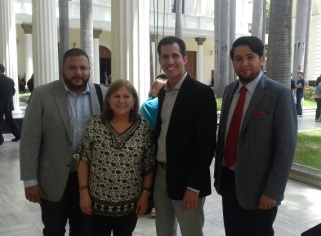
Jun 18, 2016 | Focolare Worldwide
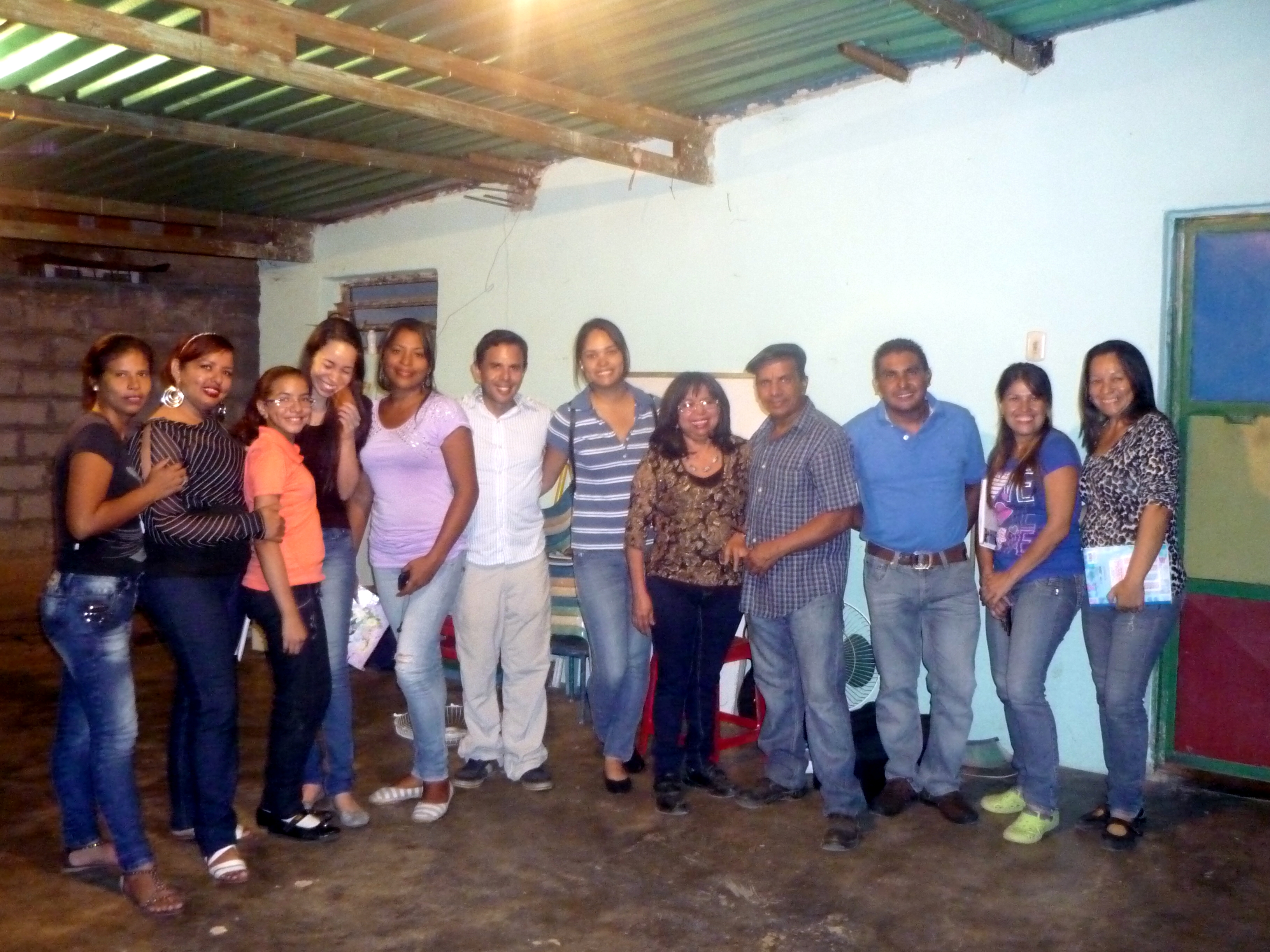 “On my way home,” recounts Ofelia who is from a small district of Valencia, the third largest city of Venezuela, “I saw a couple going home on foot. I slowed down and asked if they wanted a ride. Exhausted and breathless, they got into the car immediately. After getting their breath back they told me that they had awoken very early to go and buy flour and other basic foodstuffs for their kids, but the queue was so long that when their turn came, there was nothing left. Disappointed, they told themselves that the only thing they would return home with was a big headache since they had not had breakfast or lunch.” These painful and unfortunately recurring situations often go unanswered since even Ofelia had nothing to give them. Her purse was empty and she was jobless. The widespread lack of means of livelihood pushed the Focolare community in Venezuela to help one another in all ways. For example, the ladies offer one another hairstyling services and mend old clothes to give to those in need, so as to be neat and orderly despite their poverty, and testify also visibly to the evangelical love they try to live amongst them. “One day,” the head of a family recounted, “I went to buy some food, but there was nothing available and it seemed like everything had disappeared. On doing our rounds I spotted some foruro or toasted maize. We generally do not eat this, but we recalled that one of our friend’s family ate it, and I thought that it was better than nothing. In the afternoon, passing by their home, I dropped by to ask whether they had eaten lunch. The wife said “no, not even breakfast. We have no money and my husband has weakened due to hunger.” I told her that they couldn’t go to bed without eating something, and ran to take the foruro I had bought. That evening for me was really joyful since they were able to have dinner, even if only with just foruro. One day, Laura was stopped by a woman who confided her worries since she could not find the medicine for her hypertension. She herself instead managed to get the drugs through acquaintances from abroad. In times like this, it would be prudent to keep these items for oneself, also because you never know whether you will be able to procure them again. But in the Gospel Jesus said «give and you will receive, and without thinking twice, opened her bag and gave her a whole blister pack of pills.
“On my way home,” recounts Ofelia who is from a small district of Valencia, the third largest city of Venezuela, “I saw a couple going home on foot. I slowed down and asked if they wanted a ride. Exhausted and breathless, they got into the car immediately. After getting their breath back they told me that they had awoken very early to go and buy flour and other basic foodstuffs for their kids, but the queue was so long that when their turn came, there was nothing left. Disappointed, they told themselves that the only thing they would return home with was a big headache since they had not had breakfast or lunch.” These painful and unfortunately recurring situations often go unanswered since even Ofelia had nothing to give them. Her purse was empty and she was jobless. The widespread lack of means of livelihood pushed the Focolare community in Venezuela to help one another in all ways. For example, the ladies offer one another hairstyling services and mend old clothes to give to those in need, so as to be neat and orderly despite their poverty, and testify also visibly to the evangelical love they try to live amongst them. “One day,” the head of a family recounted, “I went to buy some food, but there was nothing available and it seemed like everything had disappeared. On doing our rounds I spotted some foruro or toasted maize. We generally do not eat this, but we recalled that one of our friend’s family ate it, and I thought that it was better than nothing. In the afternoon, passing by their home, I dropped by to ask whether they had eaten lunch. The wife said “no, not even breakfast. We have no money and my husband has weakened due to hunger.” I told her that they couldn’t go to bed without eating something, and ran to take the foruro I had bought. That evening for me was really joyful since they were able to have dinner, even if only with just foruro. One day, Laura was stopped by a woman who confided her worries since she could not find the medicine for her hypertension. She herself instead managed to get the drugs through acquaintances from abroad. In times like this, it would be prudent to keep these items for oneself, also because you never know whether you will be able to procure them again. But in the Gospel Jesus said «give and you will receive, and without thinking twice, opened her bag and gave her a whole blister pack of pills.  In this country’s difficult situation, the visit of Cecilia di Lascio (21-25 May) Argentinean, and regional coordinator of the Political Movement for Unity, was really timely. In Caracas, she had an interesting meeting with 75 people who wanted to commit themselves for the common good, and among whom were various young people: in the hall of the National Assembly she presented the ideal of unity to a group of people who were interested in politics, and before leaving the country held a meeting with a group of university professors on how to educate the youth according to the paradigm of fraternity in the various disciplines of knowledge and human activities. Two important events were also held in the encounter with Dr. Lombardi, of the Cecilio Acosta University, and a meeting with the RUEF (University network of studies on Fraternity) commission. All this contributed to acquiring greater comprehension of the political process taking place in the country. “We have to focus on equity, the central objective and start off from the paradigm of fraternity,” Dr Lascio affirmed in her various speeches. “In this difficult situation I firmly believe in the importance of working together for the common good.”
In this country’s difficult situation, the visit of Cecilia di Lascio (21-25 May) Argentinean, and regional coordinator of the Political Movement for Unity, was really timely. In Caracas, she had an interesting meeting with 75 people who wanted to commit themselves for the common good, and among whom were various young people: in the hall of the National Assembly she presented the ideal of unity to a group of people who were interested in politics, and before leaving the country held a meeting with a group of university professors on how to educate the youth according to the paradigm of fraternity in the various disciplines of knowledge and human activities. Two important events were also held in the encounter with Dr. Lombardi, of the Cecilio Acosta University, and a meeting with the RUEF (University network of studies on Fraternity) commission. All this contributed to acquiring greater comprehension of the political process taking place in the country. “We have to focus on equity, the central objective and start off from the paradigm of fraternity,” Dr Lascio affirmed in her various speeches. “In this difficult situation I firmly believe in the importance of working together for the common good.”
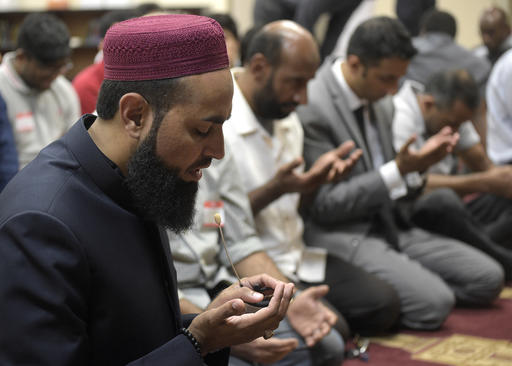
Jun 17, 2016 | Focolare Worldwide
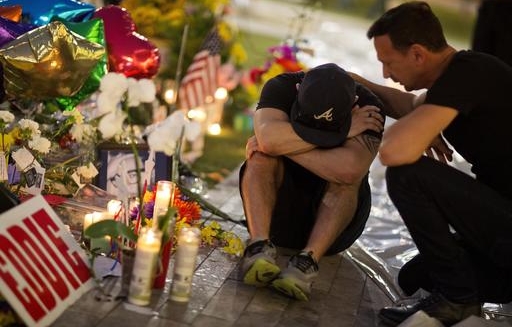 “When the telephone rang on Sunday morning, at the other end of the line was my husband’s son weeping: his friend had been among the victims of the massacre in Orlando. The tragedy had come right into our own home.” Kathie felt that the only possible response to such pain was love. She gathered the family: “We joined the 18:00 moment of silence that enveloped the city and the state, and then we went to Mass to pray that God would comfort the families, the wounded, my stepson and his friends.” Eva’s beauty parlour is only a few miles from the Pulse, and her colleagues knew several of the club’s customers. “I hadn’t turned on the TV and wasn’t particularly alarmed by the sound of sirens in the night, so I heard about the shooting at church where it was announced that one of our parishioners had been killed. They were our friends. What happened to them could have happened to me or to others around me. I asked myself if I had really done my best to love the people right beside me. Bullets had killed those young people, but I couldn’t make love die.”
“When the telephone rang on Sunday morning, at the other end of the line was my husband’s son weeping: his friend had been among the victims of the massacre in Orlando. The tragedy had come right into our own home.” Kathie felt that the only possible response to such pain was love. She gathered the family: “We joined the 18:00 moment of silence that enveloped the city and the state, and then we went to Mass to pray that God would comfort the families, the wounded, my stepson and his friends.” Eva’s beauty parlour is only a few miles from the Pulse, and her colleagues knew several of the club’s customers. “I hadn’t turned on the TV and wasn’t particularly alarmed by the sound of sirens in the night, so I heard about the shooting at church where it was announced that one of our parishioners had been killed. They were our friends. What happened to them could have happened to me or to others around me. I asked myself if I had really done my best to love the people right beside me. Bullets had killed those young people, but I couldn’t make love die.”
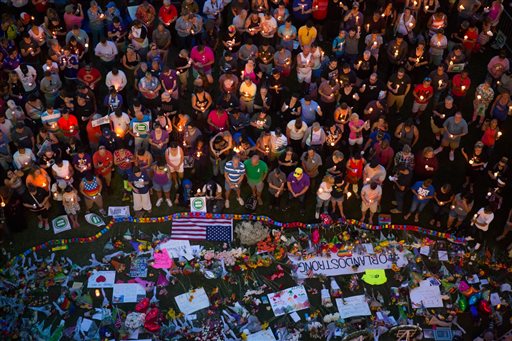
Mourners attend a candlelight vigil in Orlando
 There is a strong risk that Muslims will again be blamed of favouring great acts of violence, but the reality is altogether different, because they were the first to step up and donate blood for the many wounded and, in many cities, the night prayer during Ramadan was dedicated to the murder victims of Orlando. Sandra, Milagros and Joyce, who are less than 70 years old between them, had to admit once more that the Gospel is the only weapon that doesn’t injure others, but only one’s own egoism and pride. “It’s all so senseless what we are going through, but we can’t let ourselves be paralyzed by fear. We have to demonstrate that love, precisely because it begins small – from peace in our workplaces and with our neighbours – can change much and bring hope and forgiveness.” “On Sunday morning, when I learned of the tragic events far from my home, among people whose choices were different from mine, I thought that difference cannot divide us: They’re my brothers and sisters.” With these words Celi began her testimony, her network of prayer and communion. “The only answer to hatred and terrorism is to never stop living by this belief in love and, especially, to do it together with all the people who never stop extending God’s caress to everyone.”
There is a strong risk that Muslims will again be blamed of favouring great acts of violence, but the reality is altogether different, because they were the first to step up and donate blood for the many wounded and, in many cities, the night prayer during Ramadan was dedicated to the murder victims of Orlando. Sandra, Milagros and Joyce, who are less than 70 years old between them, had to admit once more that the Gospel is the only weapon that doesn’t injure others, but only one’s own egoism and pride. “It’s all so senseless what we are going through, but we can’t let ourselves be paralyzed by fear. We have to demonstrate that love, precisely because it begins small – from peace in our workplaces and with our neighbours – can change much and bring hope and forgiveness.” “On Sunday morning, when I learned of the tragic events far from my home, among people whose choices were different from mine, I thought that difference cannot divide us: They’re my brothers and sisters.” With these words Celi began her testimony, her network of prayer and communion. “The only answer to hatred and terrorism is to never stop living by this belief in love and, especially, to do it together with all the people who never stop extending God’s caress to everyone.”
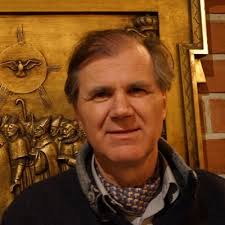
Jun 16, 2016 | Focolare Worldwide
 “Christians in Festival” was the title chosen for a large ecumenical gathering in Nizza, France where Swiss Reformed Pastor, Martin Hoegger, was invited to give his testimony on “Christ, light of my life” and on how it led him from atheism to belief. We offer some excerpts, but the complete text in French can be found on his blog. “At the age of 18 I was asking many questions about the meaning of life. I was wondering which studies I should take up. I was quite knowledgeable in philosophy and literature, but I wasn’t searching for wisdom. I also wanted to know God. I enrolled at the school of theology in Lausanne. I was drawn to the study of religion, and I imagined I would find my way in theology. But the more I went ahead the more the questions increased. Ten months later I was an atheist. One day I went into a church and posted my rebellion on the lectern: ‘God doesn’t exist!’ I decided to give my studies, but the questions continued. Sometime later I met a friend who invited me to attend a meeting in Aix-en-Provence at a Protestant school of theology. That’s where God was waiting for me. I was touched by the fraternal atmosphere that was flowing among the people at that meeting. That night I knelt down in my bedroom, and only one word came to my lips: “Sorry”. I was surprised. To whom had I spoken that word? Deep down I knew why I had said it: At that time I was in conflict with a lot of people and had offended quite a few. When I got home, I went to them to ask ‘forgiveness’. Each time was a new experience of light: I experienced Christ waiting for me in others, especially in the most disadvantaged. So I sought contact with other Christians. Up until that day I had lived life on my own. Now, I had discovered the light of the Risen Jesus that illuminates those who gather in his name. I’ll share with you three experiences on the Word that have a strong ecumenical dimension. The School of the Word: When I was director of the Swiss Bible Society, I entered in contact with Cardinal Martini, the then archbishop of Milan. He was gathering thousands of young people to experience lectio divina. Several people involved in youth ministry from the Catholic, Reformed and Evangelical Churches in Switzerland were interested in the experience. The Cardinal invited us to launch an ecumenical School of the Word. We experienced that getting together to listen to Christ unites us at a very deep level. The Word of Life as “light for my path” (Ps 119,105). The Word of Life is put out by the Focolare Movement, which I’ve been involved with for some twenty years. It’s a Bible verse that we meditate on for one month, but especially try to live in our daily lives and share the fruits with one another. I proposed it to the parishioners in the parish where I exercise my Ministry: It renewed the parish. Celebration of the Word every first Sunday of the month at the Cathedral of Lausanne. The Community of Churches from the Canton of Vaud invited the 20 churches that belong to it. Since 2004 over a hundred such celebrations have been held there. It’s been a fine ecumenical apprenticeship in which we discover our diversity and rejoice in it. It encourages us not be afraid of our differences and to give thanks for the gifts that have been accorded to others, and which never cease to enrich us. This precious initiative has been most useful in helping us to walk together as Christians towards unity. Gathering again and again in the presence of God, to listen to his Word is to already anticipate a full communion. By prayer the Holy Spirit already unites us, and that’s why Christ is light in my life.” Maria Chiara De Lorenzo Blog of Martin Hoegger Address of His Holiness Pope Francis to the World Communion of Reformed Churches
“Christians in Festival” was the title chosen for a large ecumenical gathering in Nizza, France where Swiss Reformed Pastor, Martin Hoegger, was invited to give his testimony on “Christ, light of my life” and on how it led him from atheism to belief. We offer some excerpts, but the complete text in French can be found on his blog. “At the age of 18 I was asking many questions about the meaning of life. I was wondering which studies I should take up. I was quite knowledgeable in philosophy and literature, but I wasn’t searching for wisdom. I also wanted to know God. I enrolled at the school of theology in Lausanne. I was drawn to the study of religion, and I imagined I would find my way in theology. But the more I went ahead the more the questions increased. Ten months later I was an atheist. One day I went into a church and posted my rebellion on the lectern: ‘God doesn’t exist!’ I decided to give my studies, but the questions continued. Sometime later I met a friend who invited me to attend a meeting in Aix-en-Provence at a Protestant school of theology. That’s where God was waiting for me. I was touched by the fraternal atmosphere that was flowing among the people at that meeting. That night I knelt down in my bedroom, and only one word came to my lips: “Sorry”. I was surprised. To whom had I spoken that word? Deep down I knew why I had said it: At that time I was in conflict with a lot of people and had offended quite a few. When I got home, I went to them to ask ‘forgiveness’. Each time was a new experience of light: I experienced Christ waiting for me in others, especially in the most disadvantaged. So I sought contact with other Christians. Up until that day I had lived life on my own. Now, I had discovered the light of the Risen Jesus that illuminates those who gather in his name. I’ll share with you three experiences on the Word that have a strong ecumenical dimension. The School of the Word: When I was director of the Swiss Bible Society, I entered in contact with Cardinal Martini, the then archbishop of Milan. He was gathering thousands of young people to experience lectio divina. Several people involved in youth ministry from the Catholic, Reformed and Evangelical Churches in Switzerland were interested in the experience. The Cardinal invited us to launch an ecumenical School of the Word. We experienced that getting together to listen to Christ unites us at a very deep level. The Word of Life as “light for my path” (Ps 119,105). The Word of Life is put out by the Focolare Movement, which I’ve been involved with for some twenty years. It’s a Bible verse that we meditate on for one month, but especially try to live in our daily lives and share the fruits with one another. I proposed it to the parishioners in the parish where I exercise my Ministry: It renewed the parish. Celebration of the Word every first Sunday of the month at the Cathedral of Lausanne. The Community of Churches from the Canton of Vaud invited the 20 churches that belong to it. Since 2004 over a hundred such celebrations have been held there. It’s been a fine ecumenical apprenticeship in which we discover our diversity and rejoice in it. It encourages us not be afraid of our differences and to give thanks for the gifts that have been accorded to others, and which never cease to enrich us. This precious initiative has been most useful in helping us to walk together as Christians towards unity. Gathering again and again in the presence of God, to listen to his Word is to already anticipate a full communion. By prayer the Holy Spirit already unites us, and that’s why Christ is light in my life.” Maria Chiara De Lorenzo Blog of Martin Hoegger Address of His Holiness Pope Francis to the World Communion of Reformed Churches
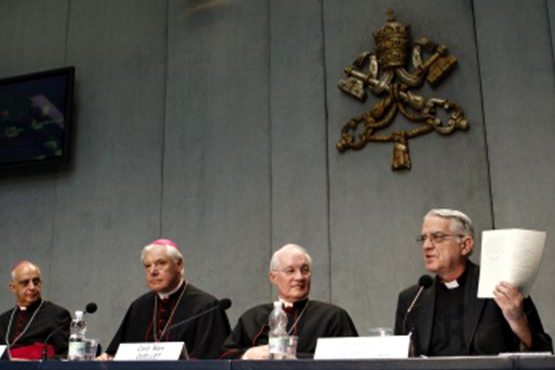
Jun 15, 2016 | Senza categoria
 The letter entitled Iuvenescit Ecclesia, signed by the Cardinal Prefect of the Congregation for the Doctrine of the Faith, Ludwig Müller, and by the Archbishop Secretary, Luis Ladaria, approved by Pope Francis, is addressed to the bishops of the Catholic Church and deals with the “relation between hierarchical and charismatic gifts for the life and mission of the Church.” The Letter is inserted in the Church’s journey beyond itself, in this new phase of history and is a joyful incentive for the new lay Movements and also the Focolare Movement which is an ecclesial Movement. That mutual exchange between hierarchical and charismatic gifts, which the Letter discusses, fully expresses the experience of the Focolare from its beginnings until now. The Focolare is immersed in that wave of movements raised up by the Holy Spirit for the renewal of the Church in synergy with its Bishops, as the then Cardinal Ratzinger stated in May 1998 in preparation for the 2000 Jubilee. Iuvenescit Ecclesia is a further incentive for the Focolare Movement to correspond with authenticity to the co-essentiality between hierarchical gifts and charismatic gifts that St John Paul II spoke of, in the wake of the Second Vatican Council. Today, such co-essentiality seems more than ever necessary for the life and mission of the Church as it serves the human family – with its needs, wounds and demands – so that we can work for that challenging but realistic goal of building the civilization of love. Read the Vatican document Source: Focolare Information Service
The letter entitled Iuvenescit Ecclesia, signed by the Cardinal Prefect of the Congregation for the Doctrine of the Faith, Ludwig Müller, and by the Archbishop Secretary, Luis Ladaria, approved by Pope Francis, is addressed to the bishops of the Catholic Church and deals with the “relation between hierarchical and charismatic gifts for the life and mission of the Church.” The Letter is inserted in the Church’s journey beyond itself, in this new phase of history and is a joyful incentive for the new lay Movements and also the Focolare Movement which is an ecclesial Movement. That mutual exchange between hierarchical and charismatic gifts, which the Letter discusses, fully expresses the experience of the Focolare from its beginnings until now. The Focolare is immersed in that wave of movements raised up by the Holy Spirit for the renewal of the Church in synergy with its Bishops, as the then Cardinal Ratzinger stated in May 1998 in preparation for the 2000 Jubilee. Iuvenescit Ecclesia is a further incentive for the Focolare Movement to correspond with authenticity to the co-essentiality between hierarchical gifts and charismatic gifts that St John Paul II spoke of, in the wake of the Second Vatican Council. Today, such co-essentiality seems more than ever necessary for the life and mission of the Church as it serves the human family – with its needs, wounds and demands – so that we can work for that challenging but realistic goal of building the civilization of love. Read the Vatican document Source: Focolare Information Service

 Nearly two months have gone by since Ecuador was hit by a disastrous earthquake. The Focolare Movement immediately began a fundraising effort to meet requests for basic necessities, and it set up a work group coordinated by the United World Association and the New Families NPO Association. The generous support of people from around the world arrived quickly, and we have now ready to send the first funds that will provide people of Ecuador with such things as food, sanitation and psychological support. This assistance will be directed especially to families from the Provinces of Manabi and Espmeraldes, which suffered the most damage. In partnership with the local NGO, Fondo Ecuatoriano Populorum Progressio (FEPP), the first six-month phase will focus on studying the reconstruction of infrastructure and returning local production. The study will work in collaboration with the international network of architects known as “Arquitecturalimite” which specializes in designing services in contexts where there is socio-economic exclusion. On November 9 – 13, 2016, while a course on peace is being offered to young people, a series of architectural workshops will be taking place to deal with possible responses to the earthquake disaster. How you can help Source: AMU – AFN Onlus
Nearly two months have gone by since Ecuador was hit by a disastrous earthquake. The Focolare Movement immediately began a fundraising effort to meet requests for basic necessities, and it set up a work group coordinated by the United World Association and the New Families NPO Association. The generous support of people from around the world arrived quickly, and we have now ready to send the first funds that will provide people of Ecuador with such things as food, sanitation and psychological support. This assistance will be directed especially to families from the Provinces of Manabi and Espmeraldes, which suffered the most damage. In partnership with the local NGO, Fondo Ecuatoriano Populorum Progressio (FEPP), the first six-month phase will focus on studying the reconstruction of infrastructure and returning local production. The study will work in collaboration with the international network of architects known as “Arquitecturalimite” which specializes in designing services in contexts where there is socio-economic exclusion. On November 9 – 13, 2016, while a course on peace is being offered to young people, a series of architectural workshops will be taking place to deal with possible responses to the earthquake disaster. How you can help Source: AMU – AFN Onlus









 “On my way home,” recounts Ofelia who is from a small district of Valencia, the third largest city of
“On my way home,” recounts Ofelia who is from a small district of Valencia, the third largest city of 



